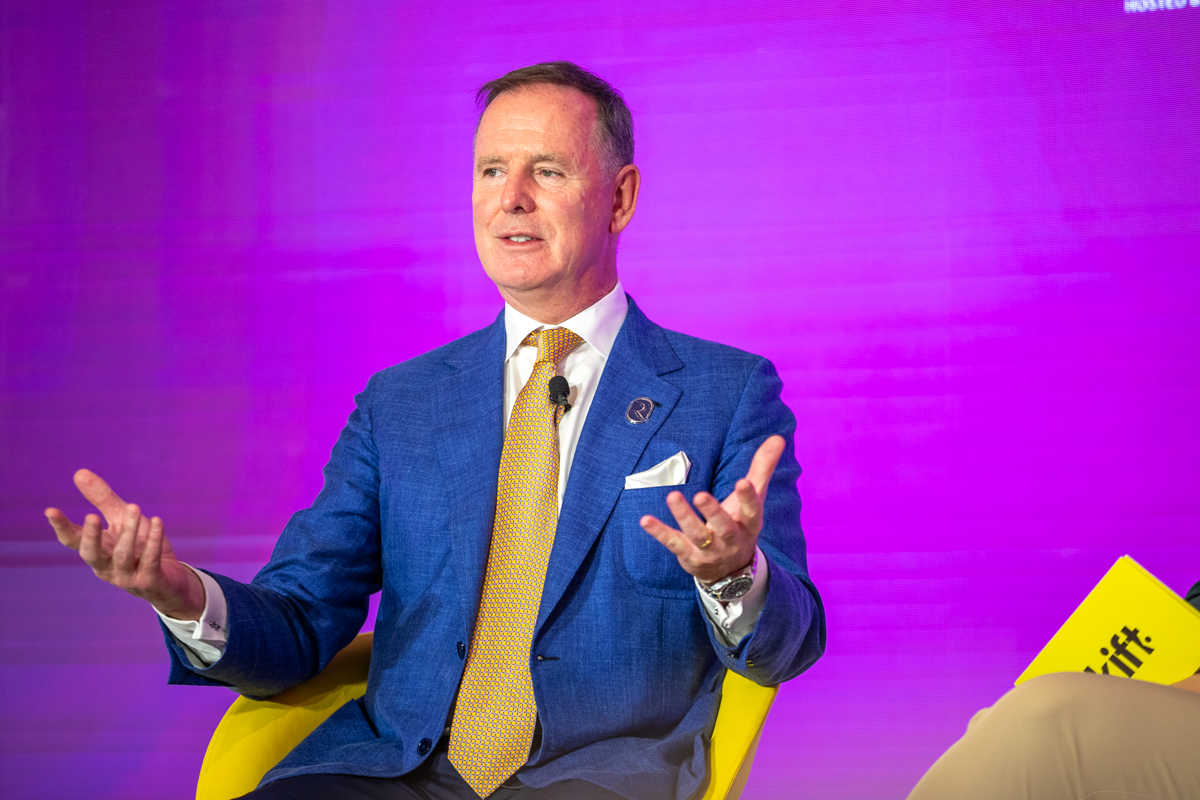Tour Operator Booking Patterns Are Going Through a 'Seismic Shift' in 2016

Skift Take
For decades, tour operators have seen standard booking patterns surround the top destinations for global travelers. Classic European destinations like Italy and France dominated the landscape, with vacations being booked four to six months in advance.
But tour operators have seen an unexpected change in bookings this year, with tourists choosing alternative destinations and booking their vacations much closer to their date of departure.
"We have seen a seismic shift in historical booking [patterns]," said Gavin Tollman, CEO of Trafalgar. "It's almost as though consumers got together, distributed a memo, and they just forgot to copy us on it. Because we have just seen the enormity of the shift, in two different ways: where people are traveling to, and when they're booking."
Off-the-beaten-path destinations have seen a surge in bookings while traditional tours to cities like London, Paris, and Rome have fallen off.
Trafalgar, for instance, is seeing double-digit growth in its sales to Ireland, Spain, Portugal, Croatia, and Scandinavian countries at the expense of Central Europe.
Travelers also booked tours much more close to peak summer travel season than ever before.
"Without a doubt the biggest change that we're seeing this year has been the shift in our booking patterns," said Tollman. "Our average booking period used to be 120 to 150 days... now it's 60 to 90 days. It all happened without notice. Just, bingo. It's maintained that trend throughout the year."
The collision of these two trends means that tours that are traditionally booked months in advance to top destinations have yet to be filled, particularly in September, which is usually the industry's biggest month.
Unexpected Rebound
"Up to date we’ve seen some rebound in terms of demand year-over-year, but it hasnt been dramatic," said Steve Born, vice president of sales for the Globus Family of Brands. "Usually at this time of the year we have about 90 percent of our bookings in the bank. We’re seeing now that dynamic is changing, there’s a little more life left in booking travel later."
Globus' tour brands are seeing strong growth in its exotic tour categories and trips to Asia, and echoed strength in Europe outside France and Italy. But weaker bookings first turned up in the wake of last November's Paris attacks, and a solid recovery has yet to take place.
Executives told Skift the slowdown is the result of a combination of terror fears, concerns over the U.S. election, and an overall movement by consumers to more diverse tour vacations in Eastern Europe and Asia.
The result of this will be a wide discounting of late-summer tours in coming months as tour operators jockey to sell these unsold trips to travelers still on the fence about taking a leisure trip this year.
"If you stop and you think about it, it makes perfect logical sense as to why [consumers are delaying their travel bookings]," said Tollman. "Around the world, whether it's politics, whether it's economics, or whether it's perceived safety issues, each and every one of those is having an impact, which is enabling people to kind of stop and think. They want to travel, they are just waiting to make their buy decision."
But not everyone is so sure that bookings overall will bounce back, given that more bad news this summer could severely impact consumer confidence.
"This year is probably going to have more uncertainty in the marketplace," said John Ische, president of Trisept Solutions, which provides booking solutions to U.S. travel agents. "There’s probably even a few percentage points of consumers who are going to hold tight and see how [the election] lands. It does have an impact, if you look right after an election we usually see a bump up in bookings."




